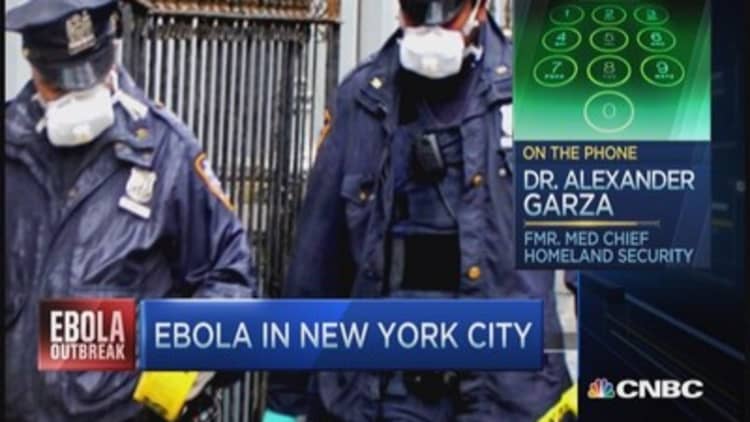
Several federal preparedness errors, including poor record keeping and missing supplies, were outlined Friday at a House Oversight and Government Reform Committee hearing on Ebola.
John Roth, inspector general for the Department of Homeland Security, told the hearing that DHS had made several mistakes in its pandemic preparation. This included buying too much of some materials and not enough of others, he said.
Roth revealed that the department had purchased 350 thousand white coverall suits, and 16 million surgical masks, "but hasn't been able to demonstrate how either fits into their pandemic preparedness plans."
Additionally, Roth said, the shelf lives on much of its personal protective equipment and antiviral drugs stockpile are set to expire soon—and there had been insufficient planning to replace those supplies. Eighty-four percent of the Homeland Security's hand sanitizer is expired, he testified.
"We face a logistics crisis focused on a health-care challenge," said Michael Lumpkin, assistant secretary at the Defense Department.
The hearing also featured Committee Chairman Darrell Issa lashing out at Dr. Tom Frieden, the director of the Centers for Disease Control and Prevention who was not present, for "statements that simply aren't true."
"We're relying on protocols coming from someone who has proven not to be correct," Issa said.
Several members of the committee criticized the Department of Defense's policy of keeping staff in limited contact on the ground in affected regions for only 10 days before allowing them to travel back to the U.S.
Read MoreUS stocks and sectors to watch after NY Ebola case
Congressmen Issa and Michael Turner told Maj. Gen. James M. Lariviere, deputy director for Africa political-military affairs at the Defense Department, that they were skeptical about a procedure that quarantines potentially infected individuals for less than the 21-day window of symptom development.
Lariviere responded that these 10 days are just to limit contact, and that the DoD personnel will then undergo a 21-day monitoring period back in the U.S.
"The 10-day waiting period has absolutely no value," Issa said, pointing out that a recently confirmed Ebola patient in New York developed symptoms after 11 days.
Dr. Nicole Lurie, assistant secretary for Health and Human Services, was also a witness at the hearing.
On Thursday, officials confirmed that a doctor who had been treating patients in West Africa tested positive for Ebola while in New York City. He is currently under isolation at Bellevue Hospital Center in Manhattan.
For the latest on that New York City Ebola case, click here.
Read More


